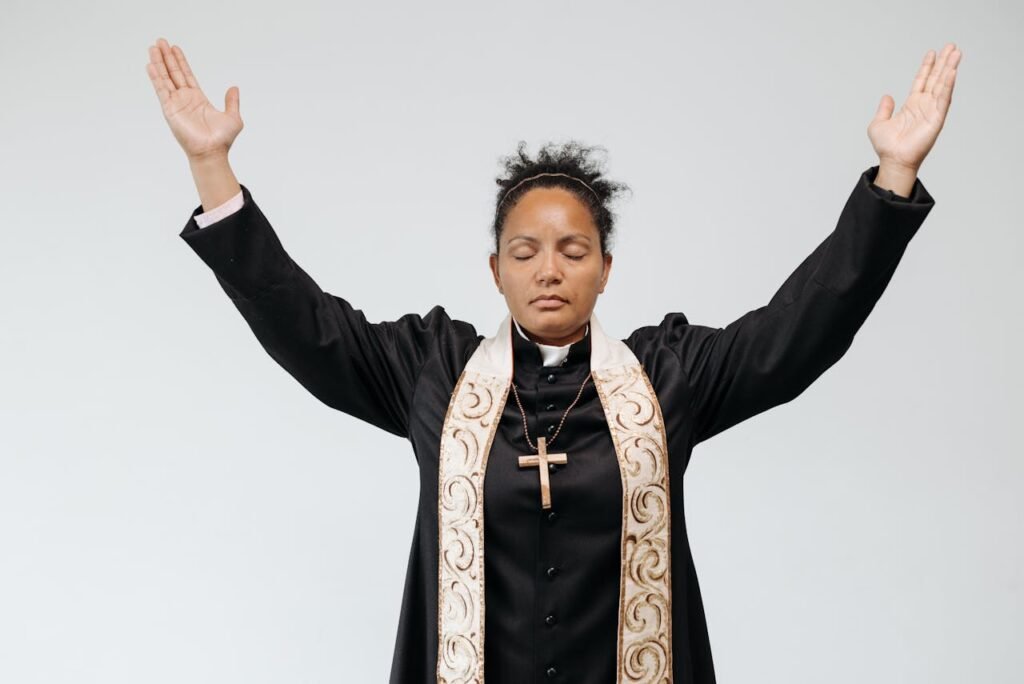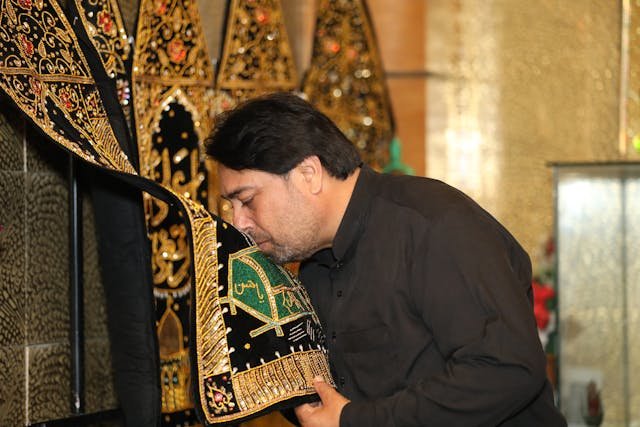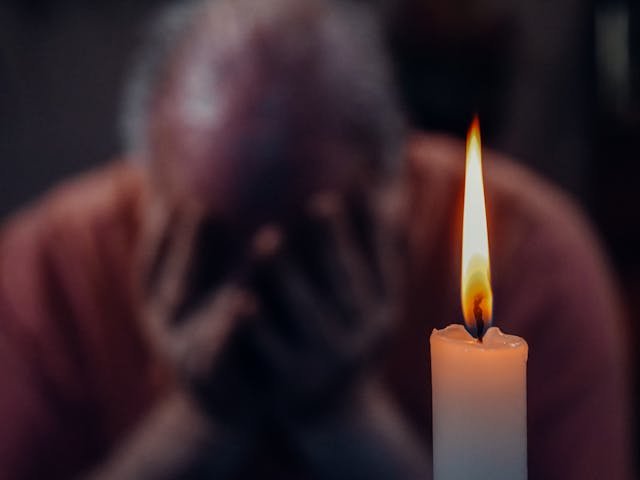
Religion should be a source of comfort, a refuge for the weary and a light for the lost. But when twisted into something darker, it becomes a blade that cuts deep and a hammer that shatters souls. Some people aren’t killed by violence or illness, but by something far more insidious: the slow, methodical destruction of their spirit under the weight of religious condemnation. They are worn down by words disguised as righteousness, by entire communities that mistake cruelty for holiness.
Picture a man who didn’t perform his faith for show. He didn’t pray loudly, didn’t quote scripture on command, didn’t seek approval through hollow displays of devotion. They whispered, then shouted, then declared with absolute certainty: You are the problem. If you were a better spiritual leader, your children wouldn’t struggle. If you loved God, you would… The accusations piled up like stones, heavy and suffocating, not because he was cruel or neglectful, but because he refused to conform.
His quiet refusal to perform, to shout his faith from rooftops, to conform to their rigid expectations, was twisted into proof of guilt.
They didn’t want authenticity; they wanted a show. A spectacle of devotion. And when he wouldn’t give them that, when he kept his spirituality personal, when he rejected their performative standards, they weaponized his silence. See? He won’t even speak of God. What is he hiding? A real man of faith would proclaim it boldly. His reluctance says everything.
They mistook dignity for defiance, privacy for shame. As if faith could only be real if it was loud. As if God only heard the screams. And that quiet strength that unshakable refusal to turn the holy into theater, was the most spiritual thing of all.
Performance Over Truth: The Lynching of the ‘irreligious’ Man”

His reluctance to perform godliness was framed as rebellion. His humanity was stripped away, replaced by a caricature, the “failed” husband, the “weak” father, the “godless” man who supposedly brought suffering upon his home. The truth didn’t matter. The love he gave, the sacrifices he made, the good he did, none of it could compete with the narrative that he was spiritually deficient. In a world that values appearances over authenticity, the greatest sin isn’t wickedness, it’s difference.
And so, he was punished, not with fists, but with words. Not with violence, but with isolation. The people who should have loved him became his prosecutors. The community that should have lifted him up became his judge. The real failure was never his lack of prayer, but their lack of mercy. The real sin was never his absence from church, but their absence of love.
This is not an indictment of faith itself, but of those who use faith as a weapon. To anyone who has been vilified for not fitting the mold: You are not a project. You are not a disappointment. You are not defined by the judgments of those who claim to speak for God. And to those who wield religion as a means of control: One day, you will have to answer for the wounds you inflicted in the name of righteousness. And no amount of prayer will wash that blood away.
When Faith Becomes a Facade

In many religious and spiritual communities, outward displays of devotion are often equated with inner goodness. Prayer, scripture reading, and church attendance can create an illusion of righteousness, one that sometimes masks deeper dysfunction. Behind the God-fearing performances and sanctimonious smiles, some of the most judgmental hearts and cruelest intentions hide in plain sight, using spirituality as both shield and weapon. They quote scripture with lips that curse in private, and lift hands in worship while their hearts plot destruction, proving that darkness often wears the disguise of light.
But what happens when faith becomes a performance? When spirituality is weaponized to control, manipulate, or emotionally suffocate another person?
This is not a condemnation of faith itself, but a warning about how spiritual facades can conceal abuse. Emotional and psychological abuse within marriages especially those framed as “godly” or “sacred” can be devastating precisely because they are invisible. The victim often suffers in silence, believing endurance is a virtue.
This is a call to awareness. Because sometimes, the most dangerous abuse doesn’t scream, it prays.
The Illusion of the “Perfectly Spiritual” Marriage

Many marriages, particularly in religious circles, are held to an impossible standard. Couples are expected to appear harmonious, loving, and devout at all times. Any sign of struggle is seen as a failure, a crack in the spiritual foundation.
This pressure to maintain appearances can be deadly. When one partner weaponizes faith, using scripture to justify manipulation, or emotional neglect, the other may feel trapped.
But abuse doesn’t disappear with more Bible study. A toxic relationship cannot be healed by prayer alone if one partner refuses accountability.
One of the most tragic aspects of spiritual abuse is how easily it is overlooked or even encouraged by well-meaning communities. If someone appears spiritual posturing in prayer, performing “godliness” with precision, they are often granted unquestioned trust, even as their behavior wounds those closest to them. The ‘godly’ spouse is presumed blameless, their every word treated as gospel, while the one who prays differently (or not at all) is branded the problem. They weaponize their sanctimony, painting their partner as ‘unspiritual’ or even abusive, all while their own heart festers with malice. They kneel in church and rise to assassinate character. Their mouths recite scripture, but their minds rehearse revenge. And the community, dazzled by the performance, never thinks to question: What if the real sin isn’t the quiet man’s lack of prayer, but the loud one’s lack of love?
Friends and family may dismiss concerns, believing that “a godly woman wouldn’t do that,” or “he just needs to pray.” But enabling denial only deepens the damage.
The Mask Was Made of Scripture, Yet It Killed Him

They called themselves people of God. They claimed to speak truth, to walk in light, to carry grace. But their words were not life, they were death. Slow, methodical, relentless.
A man was killed by whispers disguised as prayer, by gossip sanctified as “righteous concern,” by a community that worshipped the image of holiness while committing murder with their tongues. They hounded him for years, not with fists, but with words sharper than any blade. They painted him as the villain in their self-righteous narrative, stripping him of his dignity, his voice, his will to fight back.
Faith should lift souls. But theirs became a weapon, a holy noose tightening around his spirit until he could no longer breathe.
Because when “godly” people spend years carving someone’s name into a tombstone with their tongues, the result is not redemption. It is a funeral. And now he is gone. While they still stand in their bench, singing hymns.
But the truth is this: Real faith does not destroy; it heals. Real love does not kill; it breathes life.
— Banchu (Nama)